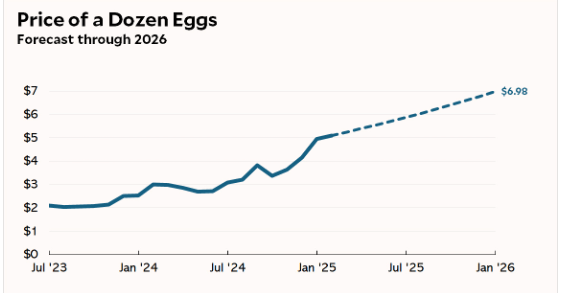I’ve talked before about Civ IV and Civ VI, two great entries in the much-beloved Civilization series of video games. I’ve talked before about how the Civ IV AIs feel like they’re a lot “better” at playing Civ IV than the Civ VI AIs are at playing Civ VI.
Civ IV AIs aren’t smart, they make dumb mistakes, but they are competent and threatening both to the player and each other. Civ VI AIs are incompetent and unthreatening, they simply don’t know *how to win* even if they are OK at surviving and acting as a speed bump.
Let me get deeper into how the AIs could “threaten” you in Civ IV. I don’t know if “threaten” is the right word, but we’ll go with that.
The most obvious way an AI can threaten your empire is they could go to war with you. A warlike leader like Alexander the Great could just build military units nonstop and attack you.
But that’s not the only thing AI leaders could do, they could also build wonders that you wanted to build. In Civilization, there are these unique buildings called “Wonders” which can only be built once in the entire world. Think of the Pyramids, the Great Wall of China, or the Statue of Liberty. Every Civ in the game gets a chance to build these wonders, but whoever built it *first* gets the wonder and all the benefits of that wonder, while everyone else gets a crummy consolation prize.
These wonders gave powerful benefits, The Great Wall for instance would completely stop barbarians from entering your territory. You might really want that wonder to protect yourself. So let’s say you start building the Great Wall, but another Civ across the map finishes their own Great Wall mere moments before you were about to finish yours. They get the Great Wall with all its benefits, you get no Great Wall and a crummy consolation prize, AND you invested a lot of production into that wonder that you could have spent on something else.
An industrious leader like Rameses had the perfect traits to outbuild you in wonders. So if he was on your map, you had to really plan and strategize how you were going to beat him to get those wonders for yourself.
AI leaders could also threaten you culturally. Civ IV had an elegant way of using culture, in that culture decided what parts of the map your empire controlled, and thus what parts you could extract resources from.
Consider two AI leaders, Julius Caesar of Rome and Louis XIV of France. They settled their cities right next to each other, and between the Roman and French cities lies a gold resource. Gold is incredibly valuable, not only does it give you money in Civ IV, but it also counts as a luxury resource that makes every city in your empire happier. Controlling that gold is key to building a wealthy and powerful nation.
Caesar is a warlike leader though, he’ll be building non-stop military units in his city. Louis is a more cultural leader, he’ll build libraries, theatres, that kind of stuff. These cultural buildings put cultural pressure on the people living between the two Empires, those people will start to adopt more and more French fashion, language, taste, and more and more of them will call themselves French and not Roman. Because they call themselves French, they’ll work for the French Civ and not the Roman Civ, thereby giving France control over the gold.
So through the power of culture, France will control the gold and Caesar won’t. And since Caesar never builds anything but military, he won’t put out the cultural pressure needed to counteract the French culture pressure. Eventually, French culture might be so strong that the people Rome might get converted into being French, they’ll want to join the French Civ rather than remain Roman because French culture is so dominant. It will take a lot of military police for Caesar to keep the his people in line, and even then they may revolt out from under him.
Which is why Caesar usually declares war on cultural Civs that settle next to him.
But anyway, this cultural pressure is *yet another way* for Civ IV AIs to threaten you. It’s not enough that you settled powerful cities in good spots, you also have to keep your citizens happy and build then some cultural buildings. If you don’t, an AI like Louis can settle on your border and convert them all out from under you.
All these three things: wonders, culture, military, are ways that the AI in Civ IV could affect and threaten you. You weren’t just playing a game all on your own, Civ IV had AIs on the board who would mess up your every plan at the slightest opportunity, with their military, their wonder-building, and their culture.
Military, wonder-building, and culture all still exist in Civ VI, but the AI can’t really use them to affect a human player.
Let’s go back to our war example with Alexander. In Civ IV, Alexander’s main mode was to declare war by marching a force across his enemy’s border that was twice as large as their entire army. All of these military units could move and attack together, so 20 units could move right next to an enemy city and attack the single archer that was guarding it. With such a large force, Alexander was basically guaranteed to conquer several cities in his path before his enemies could mount a counter-attack.
In Civ VI, Alexander is still a warlike AI who likes building units. But Civ VI has 1-unit-per-tile (abbreviated 1UPT), so all those 20 units are spread out across a very wide area, and they get in each other’s way when they try to move. If the unit at the front is attacking a city, every unit behind it is blocked from moving forward, and they have to all awkwardly shuffle around to find their own vectors of attack.
Rather than overwhelming his enemies 20-to-1 like Civ IV Alexander, Civ VI Alexander has his units attacking piecemeal, one-at-a-time, because he can’t get them all into the same place at the same time. You’d think his 20-to-1 advantage would still ensure he eventually wins, but Civ VI has so many defender advantages, and so many ways to heal units, that his attacks end up petering out in most cases.
Civ IV Alexander would conquer Civ after Civ until he faced someone with enough of a technology edge to counter his numerical edge. Civ VI Alexander rarely even takes border cities, and almost never conquers entire Civs.
How about that wonder example from earlier? In Civ IV, wonders require a certain technology in order to unlock them, and can be built faster if you have a special resource like Marble or Stone.
Rameses’s MO was therefore to bee-line for technologies that let him build wonders, try to grab any Marble or Stone he could find, and build his wonders in whatever city he had the most production in. That was usually enough to net him most of the wonders, and you’d have to bee-line those technologies yourself and outpace him in raw production if you wanted to get any.
In Civ VI, Rameses is still in the game, still obsessed with building wonders, but he is now MUCH worse at it. The thing is that wonders now have a lot of specific requirements in order to build them. You can’t just build the Colosseum in whatever city you choose, you can ONLY build it on FLAT land NEXT TO an entertainment district that ALSO has an Arena in it.
AIs are really bad at building districts, they always seem to have way fewer than they should and often those districts are placed nonsensically. The AI also doesn’t plan ahead with their districts, they will happily place their entertainment district in a spot surrounded by hills and mountains so that they have no flat land to build the Colosseum. And even if the AI builds an entertainment district next to flat land, there’s no guarantee they’ll eventually build the Arena in that district that is required to build the Colosseum.
Many of the wonders in the game have strict requirements like this, so aside from the few wonders with very loose requirements, Civ VI Rameses is just structurally incapable of building wonders. The Colosseum unlocks in the classical age, and it is a very powerful building, you’d think Rameses would want to build it. But I can still lazily pick it up in the industrial age *centuries later* because AIs like Rameses will simply *never satisfy the requirements to build it*.
In Civ VI I don’t need to bee-line technologies, or have super high production. I just need to be mindful of the wonder’s requirements, and I can build almost any of them at my leisure.
Finally let’s talk about Culture. Louis XIV isn’t in Civ VI, but Eleanor of Aquitaine is. When Eleanor leads France, they should be a cultural powerhouse just like under Louis, right? Not really.
See, there’s no cultural struggle in Civ VI like there was in Civ IV. France can’t settle next to you and steal your gold tile away with culture. Instead Civ VI works on a first-come-first-served basis, if you get the gold tile first, it’s yours forever barring some unbelievably rare circumstances.
And in fact, the map is so open in Civ VI that you’ll rarely see a Civ next to you at all. Civ IV was a mad dash to settle the map before anyone else. If you were slow, all the good resources (like the gold) would already be taken before you could get to them, leaving you with no resources of your own. At that point, the only way to get your resources in Civ IV would be either war (like Alexander) or culture (like Louis).
But Civ VI has more resources than it knows what to do with, I often stop settling cities not because there’s no more room but because I no longer want to have another city to manage. If someone does take a gold resource, well that sucks, but I can probably find another gold resource somewhere close by.
So my cities very rarely are right on the border with another Civ’s, meaning that even if she wanted to, Eleanor couldn’t steal my tiles like Louis could.
And besides, the AI can’t build culture any more than it can build wonders. As I said, the AI doesn’t build enough districts, and they certainly don’t produce enough culture from those districts to matter. You can’t culture flip tiles, but you can still culture-flip cities, and Eleanor’s special ability in Civ VI is supposed to let her better at this than anyone else. She’s so good, Civs can’t even use their military to keep cities in check the way Caesar could in the Civ IV example.
But when I’ve played against AI Eleanor, she never has any success with culture-flipping. She doesn’t produce enough culture districts, she doesn’t produce enough culture, and her cities are usually so far away from mine that her culture-flipping couldn’t happen even if I ignored culture entirely and went for a pure military victory.
I wanted to make this point about how the AIs in Civ VI don’t seem to play their game as well as in Civ IV. I’ve harped on this point a lot over the years, but I wanted to bring in some specifics because in my next post, I’d like to tackle the *why*. I don’t know for sure, but I think that a very important change in the Civ series made coding AIs for it a MUCH bigger headache, and that has led to stupider AIs overall.
Stay tuned…







